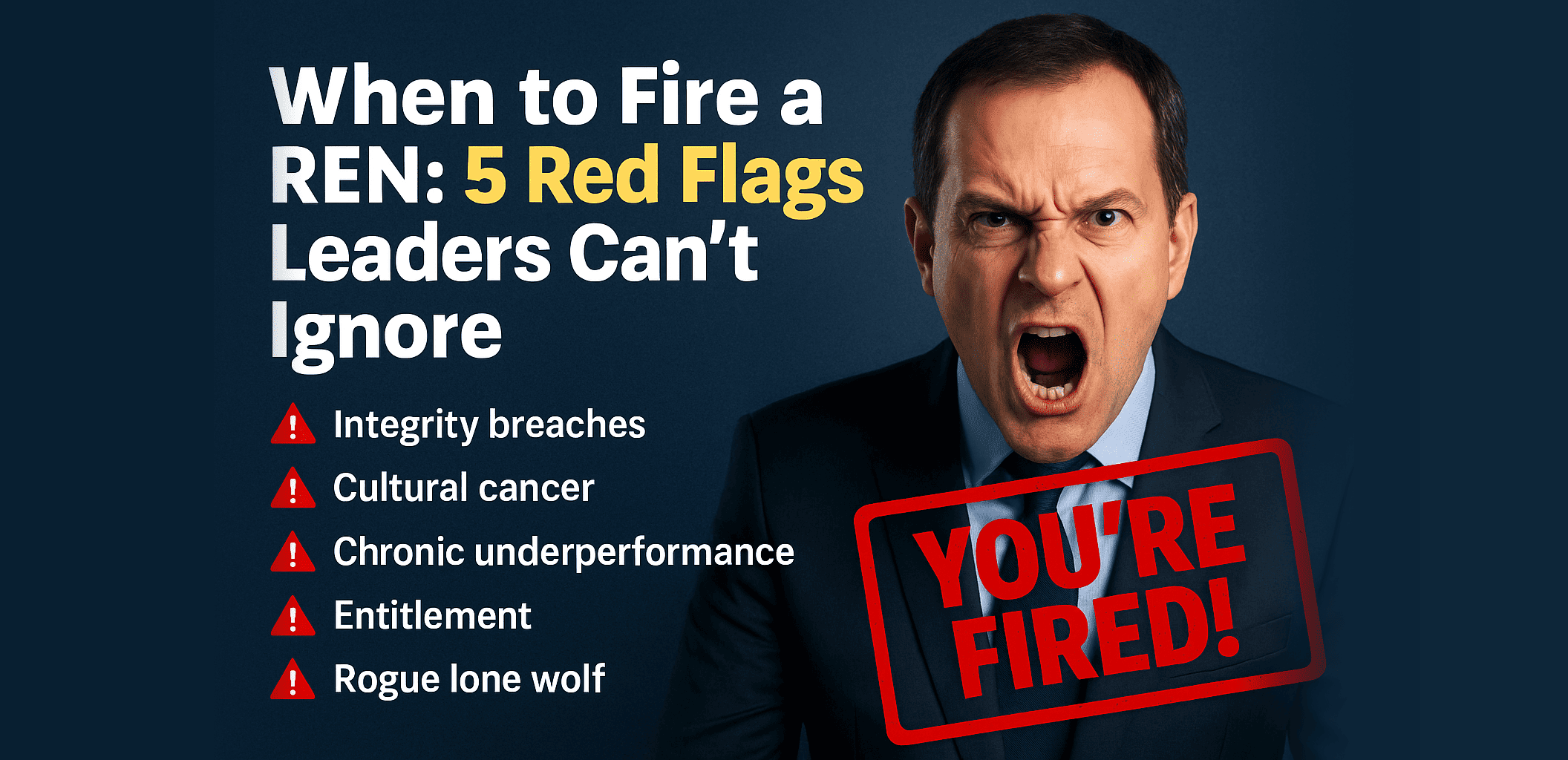When to Fire a REN: 5 Red Flags Leaders Can’t Ignore

As a property agency leader, one of your toughest—yet most necessary—decisions is knowing when to let a Real Estate Negotiator (REN) go. While recruitment is crucial for growth, retaining the wrong people can harm your agency’s culture, reputation, and bottom line.
Not every underperformer deserves dismissal—slow markets and personal challenges can impact results. However, some behaviors and patterns simply cannot be ignored. Here are five red flags that demand decisive action.
1. Integrity Breaches: The Zero-Tolerance Offense
What it looks like:
- Lying to clients about properties, prices, or transaction details.
- Mishandling client funds or deposits.
- “Parking” deals outside the agency to avoid commission sharing.
Why it’s fireable:
Trust is the foundation of real estate. Once a REN compromises ethics, they risk your agency’s reputation, invite legal action, and destroy client relationships. There are no second chances for dishonesty.
2. Cultural Cancer: The Morale Destroyer
What it looks like:
- Spreading negativity or gossip.
- Undermining team morale or leadership.
- Refusing to collaborate or share opportunities.
Why it’s fireable:
One toxic person can demotivate an entire team. Great agents leave bad cultures. If a REN consistently disrespects colleagues or disrupts harmony, their presence is costing you more than their production is worth.
3. Chronic Underperformance: No Effort, No Excuse
What it looks like:
- Consistently missing targets without valid reasons.
- Failing to follow through on leads or tasks.
- Showing no improvement despite training, mentoring, and clear feedback.
Why it’s fireable:
Time and resources are finite. If you’ve invested in a REN’s growth but see no effort or progress, you’re hindering your agency’s potential. Their inaction is blocking opportunities from motivated, capable agents.
4. The Entitled Non-Appreciator: The Energy Drain
What it looks like:
- Expecting leads, support, or opportunities without gratitude or effort.
- Blaming others—colleagues, management, or the market—for their lack of results.
- Resisting feedback and acting as though they’re owed success.
Why it’s fireable:
This attitude drains leadership energy and team morale. Real estate rewards hustle and humility—not entitlement.
5. The Rogue Lone Wolf: A Misfit in a Team Game
What it looks like:
- Ignoring agency systems, strategies, or branding guidelines.
- Hoarding information or leads.
- Avoiding team meetings or collaborative projects.
Why it’s fireable:
Property success is often a team effort—especially in project sales. If a REN won’t align with the agency’s goals, they limit both their growth and yours.
The Stakes Are Higher Than You Think
Every REN tag has a cost—financially and operationally. With each licensed agent limited to sponsoring 50 RENs, every underperformer or problem agent isn’t just taking up space—they’re blocking a valuable slot that a driven, team-oriented REN could fill.
Conclusion: Make the Call
Firing someone is never easy, but leadership isn’t about being liked—it’s about doing what’s right for your business, your team, and your clients.
Don’t wait until a problematic REN has driven away top performers, damaged your brand, or drained your resources. Protect what you’ve built.
Leadership means making the tough calls. If they fit the red flags, it’s time to act.











































































































